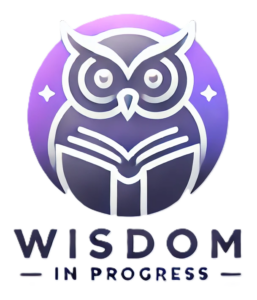
The Many Faces of Wisdom: A Path Without End
November 5th, 2024 – By Ruben Bijman
Chasing wisdom is like trying to catch sunlight in your hands—beautiful, illuminating, but impossible to grasp. The more I seek it, the more it dances just out of reach, leaving me with questions instead of answers.
“How do we define something as intangible as wisdom? For centuries, the greatest minds have tried—and failed—to pin it down. Could it be that wisdom, by its very nature, defies definition?”
“What if the wisdom I’ve been searching for isn’t meant to be found? What if its true value lies in the pursuit, not the discovery?”
The Elusive Nature of Wisdom: A Quest to Define the Indefinable
Wisdom is a concept that has intrigued me for years and many others throughout history. It’s often seen as a virtue, something that we should aspire to, yet I find its very nature difficult to pin down. Unlike intelligence or knowledge, which can be measured and accumulated, wisdom resists simple definitions. It’s intangible, elusive, and often feels just out of reach, the more I seek to define it, the more the answer slips away from me.
The Cambridge dictionary defines wisdom as ‘’the ability to make good judgments based on what you have learned from your experience, or the knowledge and understanding that gives you this ability’’
But this definition feels incomplete to me, wisdom embodies more. At its core, wisdom seems to involve more than just knowing facts or being clever. It’s a blend of life experience, reflection, emotional understanding, and practical insight. It’s the ability to apply knowledge in ways that lead to positive outcomes, not just for oneself but for the wider world.
But this still leaves us with an open question: What exactly is wisdom, and why does it feel so difficult to define?
Practical Insight: More Than Mere Knowledge
One common definition of wisdom is that it involves practical insight—the capacity to apply what one knows to real-life situations in a meaningful way. A wise person doesn’t just know things; they know how to use that knowledge to navigate life. This could mean understanding how to resolve conflicts, make difficult decisions, or balancing personal needs with the well-being of others.
But the challenge here lies in the fact that what works in one situation might not work in another. What works for you might not work for me, what works once might be an obstacle in a new situation. Wisdom often requires tailoring solutions to the unique context of a given problem. It’s not about applying rigid rules but about understanding when and how to adapt.
Adaptability: Flexibility in Action
Adaptability is an often-overlooked aspect of wisdom. The wise understand that clinging to rigid thinking can lead to failure. Instead, they practice adaptability, adjusting their perspectives and actions according to new information or changing circumstances.
The universe is unfathomably complex and always changing, this makes life inherently unpredictable. This constant state of change reminds us that no solution is permanently effective. The only thing we can do is recognizing change as the one predictable force in the universe and adapt, resisting change is foolish.
Charles Darwin captured the essence of adaptability in evolution when he said:
“It is not the strongest of the species that survive, nor the most intelligent, but the one most responsive to change.”
Would it not be wise to apply this insight to our own lives? Those who navigate life well are constantly adapting; a wise person isn’t stuck in their ways but understands that wisdom requires the ability to shift direction when necessary. This flexibility in thought and behavior is crucial because what may be wise in one context might not be in another.
Thus, true wisdom is never static—it evolves as life does.
The Humility of Wisdom: Knowing That You Know Nothing
Interestingly, one of the paradoxes of wisdom is that it involves a certain kind of humility. A wise person recognizes the limits of their knowledge and understands that true wisdom comes not from knowing everything but from acknowledging what they do not know. Ego is the enemy, and this reminds me of a lovely quote by Mark Twain:
“It ain’t what you don’t know that gets you into trouble. It’s what you know for sure that just ain’t so.”
In this way, wisdom resists any absolute definition. The wisest among us often hesitate to claim they possess wisdom at all. Instead, they approach life with a sense of curiosity and openness, always willing to learn and grow. Socrates, the father of Western philosophy and arguably one of the wisest humans to ever life had this to say:
‘’The only true wisdom is in knowing you know nothing.’’
Acceptance of Imperfection: Embracing Life’s Flaws
Wisdom also includes the ability to accept imperfection. Life is not perfect, and neither are people. A wise person understands that chasing perfection often leads to frustration, so instead, they embrace the reality that flaws and mistakes are part of the human experience. Recognizing your own flaws, bad habits and weaknesses is wise and it will empower you to improve.
This is why I ‘pursue wisdom’ rather than aiming to ‘be wise.’ The former embraces a process, while the latter is a fixed, unreachable goal. Claiming to have achieved wisdom lacks humility and ultimately undermines growth. This distinction matters.
I am dyslectic, and when I was young and struggled with this handicap, I felt frustrated and angry after trying so hard and failing anyway. I became insecure and decided to lash out, I told everyone learning languages was stupid and vowed to never become a writer -yes, the irony is not lost on me-.
My ego was hurt, and I chose to close this door, and it stayed shut for decades. I avoided writing like the plague and wanted nothing to do with it. It took ages for me to reopen this door, but it all started with finding peace with my flaws, accepting them. I also realized that I could learn but it would just take more effort, dedication and persistence than my peers, and this epiphany moment pulled me forward; I desperately wanted to improve so I could overcome this obstacle that had been plaguing me since childhood.
Now writing is one of the main sources of fulfillment in my life. I also took a practical approach and learned to apply AI to fix my grammar, spelling and syntax mistakes, which are still numerous lol.
Life Experience: Learning Through Reflection
Many people associate wisdom with age, and while not all older individuals are necessarily wise, life experience does seem to be an essential ingredient. Wisdom often arises from a deep well of lived experiences—both successes and failures—that have been thoughtfully reflected upon over time.
However, this is not to say that wisdom automatically comes with age. It requires a willingness to learn from experience, to grow from both mistakes and victories. Some people may pass through life leaving much potential wisdom on the table, because they fail to reflect deeply on their experiences, usually they keep struggling with the same problems and failing repeatedly. Others, even in youth, can show remarkable wisdom by learning quickly from their circumstances.
Actively reflecting on your experiences is a learned skill as it does not come naturally to people, it requires accepting your flaws, confronting your ego, facing your emotions and asking yourself hard questions. This is uncomfortable, and people avoid being uncomfortable because it is a form of mental pain. People don’t like pain and rightly so, but wise people understand that pain is a signal for you to improve, to change, to adapt.
If you experience pain there is a lesson for you to learn, and the universe will deal pain until you learn, or you die. It will not stop (sorry to break it to you). Wise people embrace their pain and go through it, it is the quickest way to the other side.
This is easier said than done of course, everyone struggles with this one and I am sure there are many lessons I am totally ignoring because I am too boneheaded and avoiding pain, welcome to the human experience.
Emotional Intelligence: Navigating the Human Experience
Another often overlooked aspect of wisdom is emotional intelligence. A wise person is not only attuned to their own emotions but also understands and empathizes with the emotions of others.
Let’s make one thing clear, we are having rational conversation here, my thinking brain is writing things down and your thinking brain is interpreting it. You might feel excited because you are learning things. Your emotional brain feels these insights are valuable but does not understand why, your emotions do not understand words, they cannot read, they just feel, and this can change on a moment’s notice. Your emotional brain is doing its own thing and it takes your thinking brain along for the ride.
Your thinking brain has no control over your emotions, no matter how much you try suppressing, ignoring or changing them. Wise people embrace their emotions and work with them instead of against them; they regulate their emotions in a healthy manner, using self-awareness and reflection to respond thoughtfully rather than react impulsively.
Yet wisdom often involves knowing when to follow the heart and when to let reason take the lead. Is your heart longing to quit your dreadful job but reasons like financial security are keeping you there? Well maybe follow the heart. Is your reason pushing you to go to the gym, but your feelings would rather sit on the couch? Well maybe it’s time to let reason take over.
It’s often challenging to balance emotional empathy with logical thinking, but wise people try anyway and improve over time.
Resilience in Adversity: Growing Stronger Through Hardship
Many of the wisest people are those who have experienced adversity. Resilience is a critical component of wisdom because it helps individuals grow stronger through challenges. When things go wrong, a wise person doesn’t despair—they learn from the hardship. Wisdom often emerges from the lessons gleaned through pain and difficulty, molding individuals into more thoughtful, reflective, and resilient people.
This resilience builds a foundation for making better decisions in the future, based on the strength gained from surviving life’s inevitable struggles.
I’ve had an easy life, born in the 21st century in a wealthy country to loving parents. Everywhere I went, I found safety, comfort, and stability. My life wasn’t entirely free of struggle, but most challenges were what you’d call “first-world problems.” Sometimes, I think of my ancestors, who sacrificed and worked hard to give the next generation a better life. Was I born into the generation meant to finally enjoy the fruits of their efforts? It certainly feels that way.
But what could go wrong? Exactly: too little adversity, too few challenges, too few real trials. It makes life easy but stifles growth and hampers wisdom. I’m grateful for the blessings I’ve been given, yet I realize I need to actively seek out challenges to grow, or I risk withering like a plant that loses support when its stakes are taken away.
There is wisdom in living on ones edge.
Balanced Judgment: The Art of Seeing the Big Picture
Another key element of wisdom is balanced judgment. A wise person can see the broader context, considering not only immediate concerns but also long-term consequences. They can weigh different perspectives, recognizing that no single viewpoint holds all the answers. This makes them hesitant to judge, often choosing not to judge at all if they can; opting for a more inquisitive stance and judge only after careful deliberation; and even then, they are open to change if new evidence emerges.
This is why I avoid writing about ideology, news, and politics, even though they fascinate me deeply. The more I learn, the more I see how little I truly understand. In the past, I chose sides. I grew up in a left-leaning household, and I once believed the left was unassailable. But later, in my studies, I was challenged by insightful professors to approach the right with an open mind. I shifted my views, only to realize over time that both sides have significant flaws.
Taking sides in politics, becoming attached to an ideology, or listening to only one version of newsevents stirs up strong emotions, often at the cost of true understanding. This balance, however, can be incredibly hard to achieve. In a world full of conflicting advice and pressures to act quickly, it can be difficult to step back and see the full scope of a situation.
Wisdom requires patience, humility, and the ability to resist the urge for quick fixes—qualities that aren’t always easy to cultivate.
Moral Clarity: Distinguishing Right from Wrong
In many definitions, wisdom is tied to moral and ethical clarity. A wise person can distinguish right from wrong, often transcending societal norms to follow a deeply rooted sense of justice, integrity, and compassion. Wisdom can be the guiding force that helps individuals navigate morally complex situations, even when the right path is not immediately clear.
Yet, moral wisdom is tricky. What is considered “right” or “wrong” can be subjective, shaped by culture, context, and personal beliefs.
One of my favorite childhood movies was The Lord of the Rings, a straightforward story of good versus evil, with no ambiguity, and I loved it. Unfortunately, it completely distorted my view of the world. I began to believe that everything could be easily divided into “good” and “evil” — even complex situations like the Second Gulf War in Iraq which was raging at the time. ”Surely the West were the good guys, right? And if Saddam was building nuclear weapons, then he was the villain, making the war justified in my mind.” How naive I was.
It took years to break free from that perspective. Game of Thrones showed me that morality isn’t black and white but a complex spectrum. Actions can be morally justified, driven by survival instincts, or fueled by pure malice.
Wisdom in this area often means understanding that morality is not black and white but instead involves navigating infinite shades of gray.
Why Wisdom Feels So Elusive
Despite all these definitions which are not an exhaustive list, wisdom remains elusive. Why is that?
Perhaps it’s because wisdom is not a static trait but a dynamic, evolving process. It cannot be pinned down like knowledge in a textbook or a fact on a page. Instead, wisdom is continually shaped by life, by our changing understanding of ourselves and the world around us. Just when we think we’ve grasped it, life throws us a new challenge that forces us to rethink our assumptions.
Moreover, wisdom often involves grappling with uncertainty. While knowledge seeks answers, wisdom accepts that not all questions have clear or easy solutions. This acceptance of ambiguity can be uncomfortable, making wisdom feel more like a journey than a destination.
Wisdom in Progress: An Unending Pursuit
In the end, perhaps the most defining characteristic of wisdom is that it is never fully attainable. Much like life itself, wisdom is always “in progress.” It requires us to continually reflect, seek deeper understanding, and remain humble in the face of life’s complexities, knowing that no matter how much we learn, there is always more to uncover.
WisdomInProgress encapsulates this very idea—the acknowledgment that wisdom is something we are all constantly working toward, never fully mastering but always striving to deepen. It’s a journey, not a destination, and its value lies in the pursuit itself. Each experience, each reflection, and each choice brings us closer, even if we never quite reach the end. Wisdom is a work in progress, just as we all are.
If you want to continue reading, I recommend Why I Pursue Wisdom.
Get new blog posts delivered in your mailbox—no spam, just precious wisdom!
You’re almost there!
Check your inbox and confirm your subscription to start receiving the newsletter
Follow me on X (Twitter):
Get new blog posts delivered in your mailbox—no spam, just precious wisdom!
You’re almost there! Check your inbox and confirm your subscription to start receiving the newsletter
Follow me on X (Twitter):
Populair Essays:
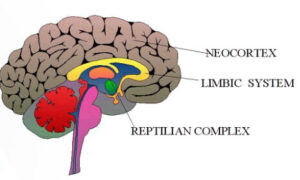
Self-Mastery III : Aligning the Human Brain by Turning Awareness into Action
“What’s the one thing you’ve been avoiding?” This question is the first step toward aligning your human brain to take action. In a world where our lizard and mammal brains often pull us in different directions, recognizing this internal conflict is crucial. But awareness alone isn’t enough; it’s time to take small, consistent actions that challenge and excite you. Discover how prioritizing one goal can lead to incredible progress and build the courage to confront your fears. Ready to transform your life? Your next step awaits—one step at a time.
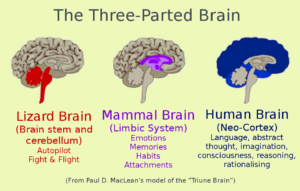
Self-Mastery I : Pursue Wisdom by Understanding the Inner Chaos of your Brain
Your brain isn’t a single, unified command center. It’s more like a committee of three, constantly bickering over what you should do, think, and feel.
So, let’s dive in and meet your inner lizard, mammal, and human—and uncover how their constant battle shapes your life.
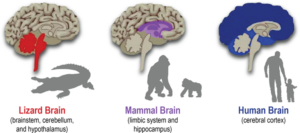
Self-Mastery IV : Aligning the Reptilian Brain by Bridging Instinct and Intention
Ever feel like your own mind is working against you? That’s your reptilian brain at play—a primal force that prioritizes survival over ambition. It’s not malicious, just outdated, reacting to modern challenges with Stone Age instincts.
In Self-Mastery IV: Aligning the Reptilian Brain, you’ll learn how to bridge the gap between instinct and intention. By understanding its needs and calming its fears, you can turn this survival machine into a partner rather than a saboteur. From managing social anxieties to overcoming fear of the unknown, discover practical strategies to align your primal instincts with your higher goals,
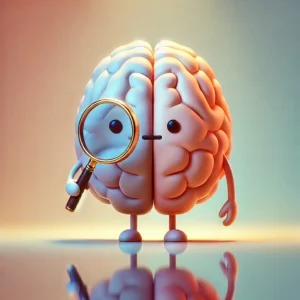
Self-Mastery II : How Awareness Tames your Brain’s Feuding Trio
Have you ever wondered why you sometimes feel like there’s a battle raging inside you? One part of you wants to eat the salad, while another screams for pizza. Or you have big dreams, but somehow Netflix wins every time.
These struggles aren’t random—they’re the result of a clash between your three sub-brains: the lizard, the mammal, and the human.
Learn here how Awareness helps you understand yourself and gaining control.
